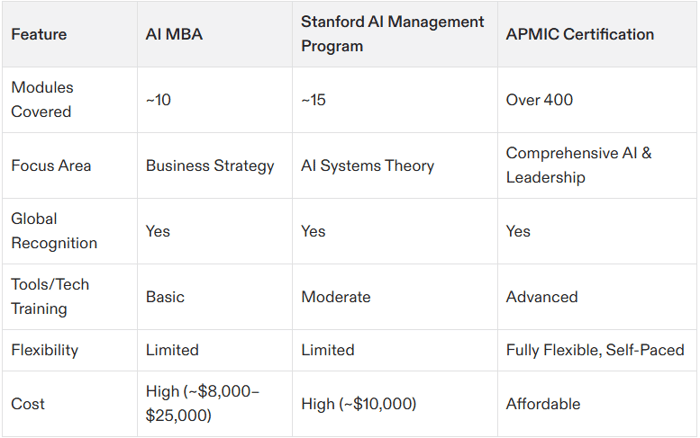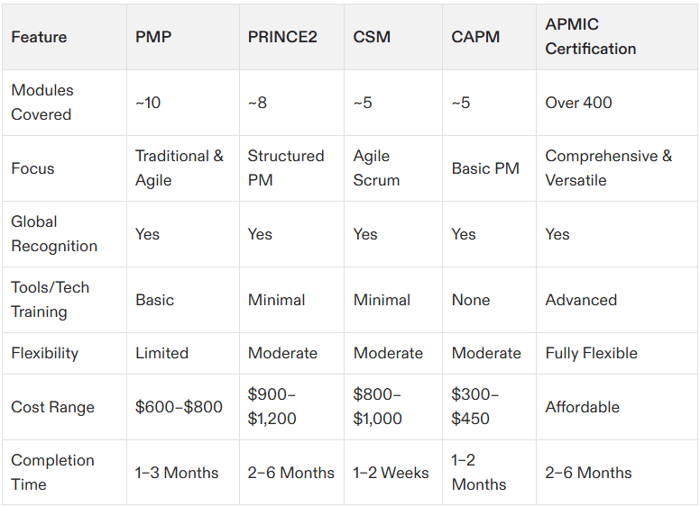Table of Contents
Picture this: You’re managing a project, juggling multiple tasks, handling an over-excited team, and—oh wait—your client just changed the project scope for the fifth time. Sounds familiar? If you’ve ever felt like your project is a rollercoaster without brakes, you might be wondering, "Is Project Management Certification Worth It?"
If you want to go from project chaos to project champion, a certification might be your golden ticket. But is it really necessary? Will it land you a high-paying job, or is it just another piece of paper to frame on your wall? Let's dive deep and answer every burning question you have.
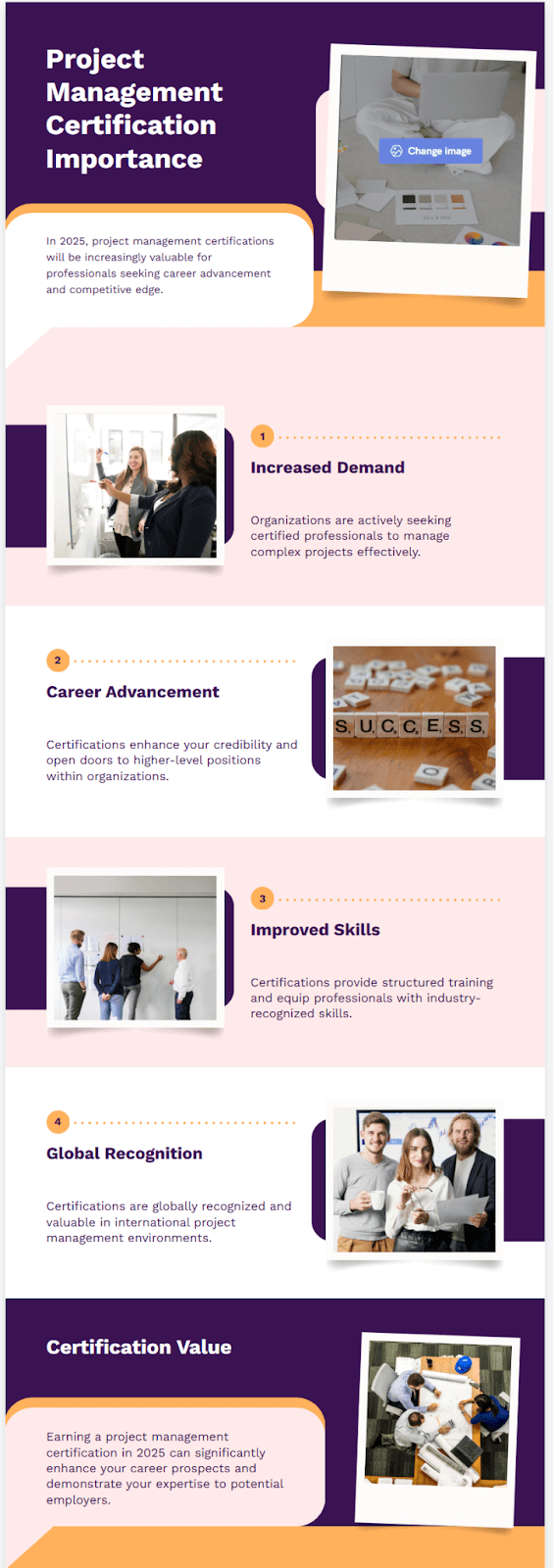
The Importance of Project Management Certification in 2025
The world of project management is evolving faster than ever. With AI-powered tools, hybrid project methodologies, and increasing global competition, companies aren’t just looking for managers—they want certified experts who can lead projects efficiently, reduce risks, and drive business value.
A project management certification is more than just a badge; it validates your skills, improves your marketability, and increases your earning potential. It demonstrates that you’re proficient in handling complex projects with structured methodologies like Agile, Waterfall, Scrum, PRINCE2, and PMBOK standards.
Still on the fence? Let’s break it down further.
For more insights on prestigious certifications, check out the Stanford Project Management Certification.
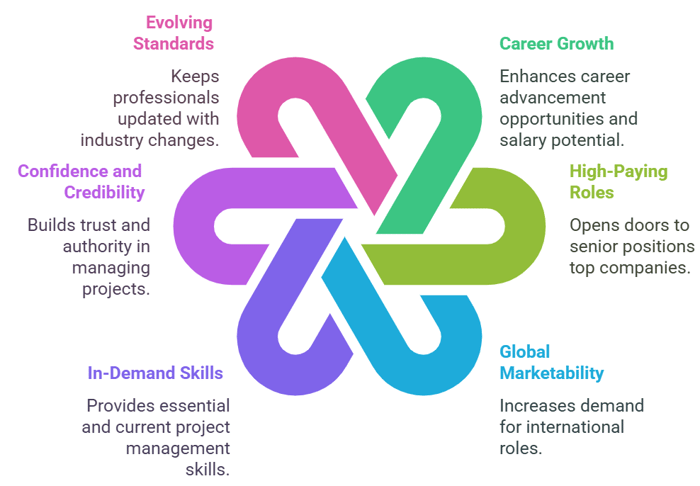
7 Reasons Why a Project Management Certification Is Worth It in 2025
1. Skyrocket Your Career Growth
A project management certification, such as PMP (Project Management Professional) or CAPM (Certified Associate in Project Management), proves to employers that you have the expertise to lead projects efficiently. In fact, PMP-certified professionals earn 16% more than non-certified managers
Not only does certification add credibility to your résumé, but it also opens doors to leadership roles. Many companies now require certifications as a standard for hiring project managers.
For more insights on salary growth, check out Glassdoor’s Project Manager Salary Guide.
2. Open Doors to High-Paying Job Roles
Whether you’re aiming for a role as a Senior Project Manager, Program Manager, or Portfolio Director, certifications can boost your credibility and help you land leadership roles in Fortune 500 companies.
According to LinkedIn’s 2025 Workforce Report, job postings requiring PMP certification have increased by 33% over the past two years. Certified professionals are highly sought after because they bring standardized, globally recognized methodologies to project execution.
3. Enhance Your Global Marketability
With remote work and cross-border collaborations on the rise, globally recognized certifications like PMP, PRINCE2, and APMIC Certification give you an edge over competitors.
Many multinational corporations, including Google, Amazon, and Microsoft, prefer project managers who have formal certifications to standardize project processes across global teams. A certified project manager can work across industries, locations, and even continents without missing a beat.
Read more about global hiring trends in project management at Harvard Business Review.
4. Develop In-Demand Skills
Certifications equip you with essential skills such as stakeholder management, budgeting, Agile frameworks, risk assessment, and crisis management—all of which are critical for successful project execution.
Beyond that, certification programs teach change management, leadership, and digital transformation strategies, which are becoming crucial as AI and automation reshape business operations.
For a deeper dive into project management skills, visit ProjectManagement.com.
For those interested in mastering workflows and collaboration, explore the Asana Project Management Certification.
5. Increase Your Confidence and Credibility
Would you trust a self-proclaimed "expert" with zero credentials? Neither would top-tier employers. Certifications validate your abilities and give you the confidence to handle multi-million-dollar projects with authority.
A certified project manager exudes trust and reliability, which is essential for gaining buy-in from executives, stakeholders, and team members. Having an accredited credential on your résumé tells people you mean business.
6. Stay Ahead with Evolving Industry Standards
With methodologies like Scrum, Lean, Kanban, and SAFe Agile dominating project workflows, staying updated is non-negotiable. Certifications ensure you remain relevant in an ever-changing industry.
Technology is reshaping how projects are executed. By 2027, AI-driven project management will dominate 80% of Fortune 500 firms. Certification programs include modules that integrate AI, digital transformation, and hybrid methodologies, preparing you for the future.
Read more about AI’s impact on project management at Forbes.
7. Improve Project Success Rates
According to PMI, companies with certified project managers complete projects 20% faster and reduce project failure rates by 25%. This translates to higher efficiency, lower costs, and happier clients.
Certified project managers know how to identify risks before they become critical issues, ensuring smoother project execution. Companies with certified professionals save an average of $126,000 per project due to efficient risk mitigation.
For more statistics on project success rates, visit PMI’s Research Database.
Which Project Management Certification Is Best for You?
Choosing the right certification depends on your career goals. Here’s a detailed comparison:
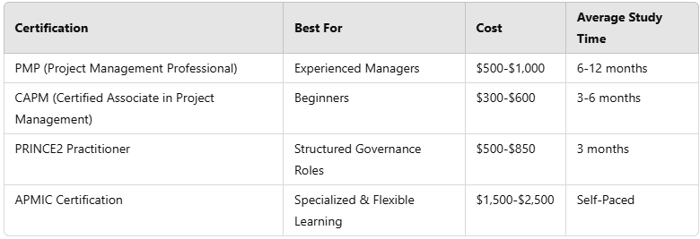
For an advanced PMP Certification Prep Course, check out APMIC Certification.
Final Thoughts
So, is Project Management Certification Worth It? Absolutely! It’s a proven investment that boosts your career, salary, and credibility. Whether you're a beginner or an experienced manager, certifications will future-proof your skills and open doors to leadership roles.
With industries rapidly evolving and digital transformation becoming the new norm, certified project managers will lead the charge in efficient, cost-effective project execution. Companies are willing to pay top dollar for skilled professionals who can deliver results consistently.
Ready to get started? Check out the PMP Certification Prep Course at APMIC—your gateway to mastering project management!
FAQs
What percentage of project managers are certified?
Only 58% of project managers worldwide hold a certification, giving certified professionals a competitive advantage.
How much does a certified project manager earn?
On average, PMP-certified managers earn $120,000 per year, compared to $90,000 for non-certified professionals.
Are online project management certifications valid?
Yes! As long as they are accredited by organizations like PMI, APM, or Axelos.
Do certifications improve project success rates?
Yes! Certified managers reduce project failures by 25% and improve completion rates.
What’s the fastest way to get PMP certified?
Enroll in an accelerated PMP course, dedicate 300+ hours to study, and take practice exams.
Is Agile project management certification worth it?
Absolutely! Agile certifications like Scrum Master (CSM) or PMI-ACP are highly valuable in tech and software industries.
What happens if you fail the PMP exam?
You can retake it up to three times per year, but you’ll need to pay a re-examination fee.
Is there financial aid for project management certification?
Yes, PMI and some online courses offer scholarships and corporate sponsorships.



